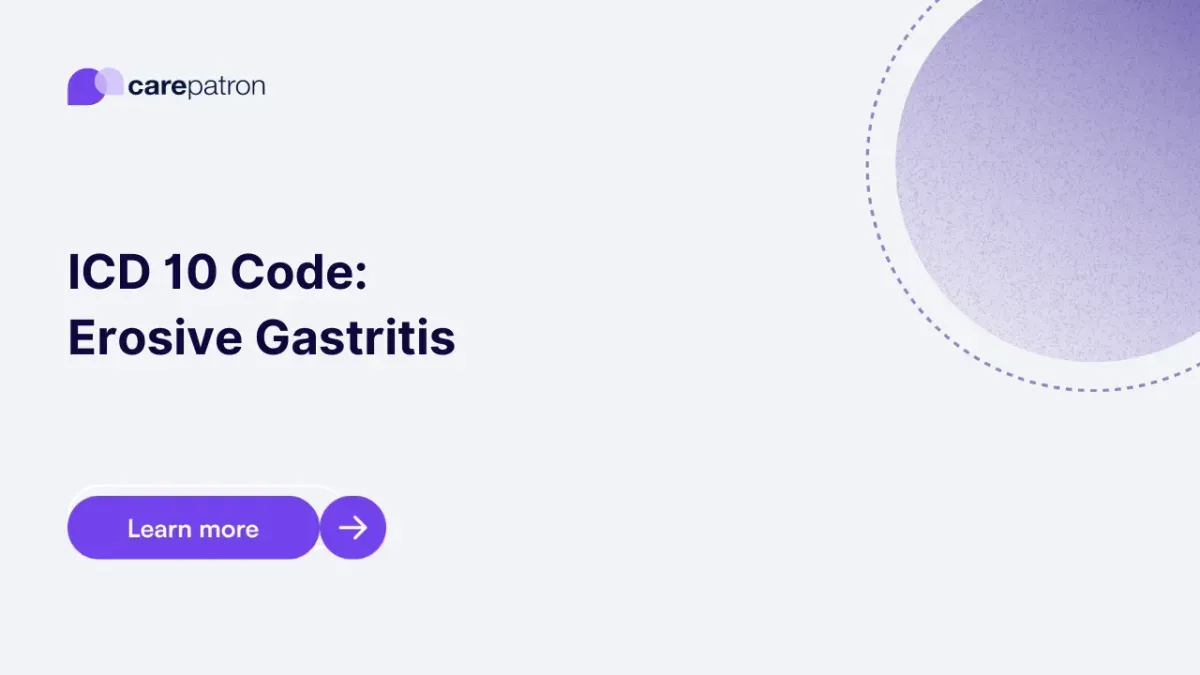
Erosive Gastritis ICD-10-CM Codes
Read this short guide to learn about the Erosive Gastritis ICD codes you can use.
Use Code
EHR and practice management software
Get started for free
*No credit card required
Free
$0/usd
Unlimited clients
Telehealth
1GB of storage
Client portal text
Automated billing and online payments
